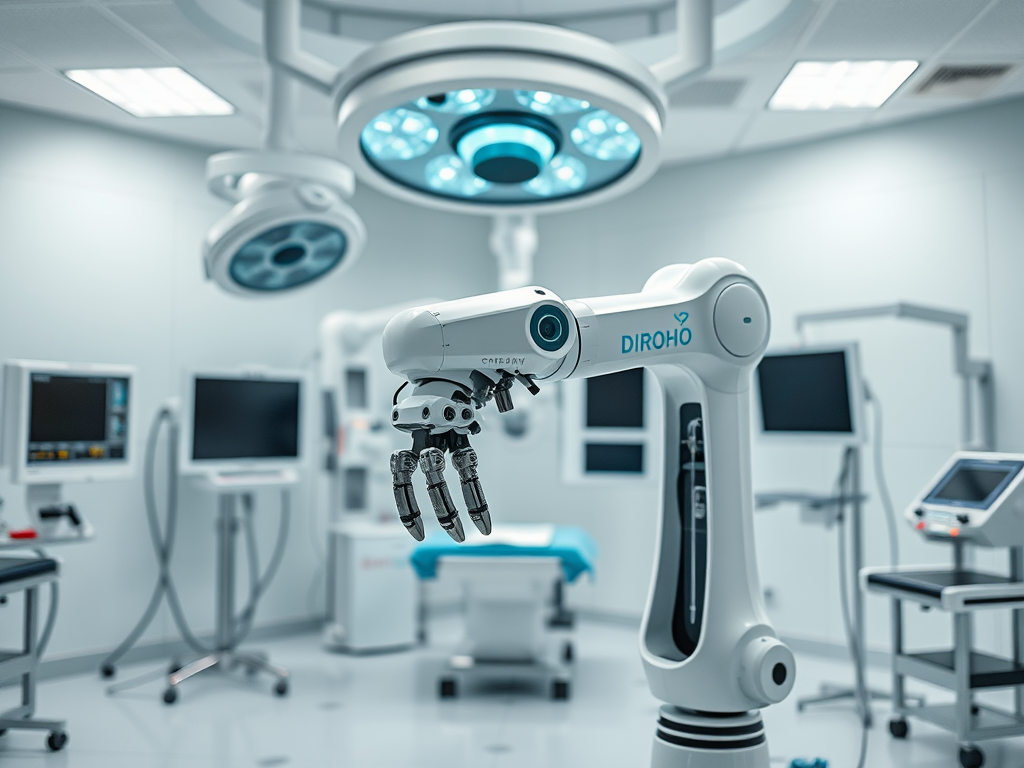Dubai’s healthcare sector is experiencing an unprecedented transformation, fueled by advancements in artificial intelligence (AI). This shift not only enhances operational efficiencies but also improves patient care and outcomes. As a global hub of innovation, Dubai is at the forefront of integrating AI technologies into healthcare systems. This article explores the key drivers behind the growth of the AI-driven healthcare market in Dubai, the various applications of AI, and the future prospects for this burgeoning field.
Key Drivers of AI Growth in Healthcare

Several factors are pushing Dubai’s healthcare market towards AI adoption. These include government support, the need for improved healthcare outcomes, and the availability of significant financial investments. The Dubai Health Authority (DHA) is actively encouraging hospitals and clinics to adopt AI technologies to streamline their operations and enhance patient experience. Here are the primary drivers of AI growth in Dubai’s healthcare sector:
- Government Initiatives: The UAE government has implemented policies that emphasize innovation and healthcare development, setting a clear roadmap for AI integration.
- Investment in Technology: With rising investments from both public and private sectors, healthcare institutions are now more equipped to harness AI technologies.
- Workforce Development: The emphasis on training healthcare professionals in AI technologies ensures a skilled workforce capable of leveraging these innovations.
- Poor Healthcare Outcomes: Addressing challenges such as long wait times and inaccurate diagnoses drives the demand for AI solutions.
- Access to Big Data: The accumulation of vast amounts of healthcare data allows AI systems to deliver insights that improve decision-making.
Applications of AI in Dubai’s Healthcare Sector

AI’s integration into Dubai’s healthcare sector encompasses a multitude of applications that are revolutionizing patient care and hospital management. These applications include predictive analytics, personalized medicine, robotic surgery, and virtual health assistants. Below are some prominent uses of AI in healthcare:
- Predictive Analytics: Predictive algorithms help in forecasting patient admissions, which in turn optimizes resource allocation.
- Robotic Surgery: AI-powered robots assist surgeons in performing complex procedures with increased precision and reduced recovery time.
- Telemedicine: AI chatbots facilitate virtual consultations, ensuring rapid response times for patient inquiries and initial assessments.
- Drug Discovery: AI accelerates the development of new drugs by simulating their effects and interactions using advanced data analytics.
- Electronic Health Records (EHR): AI systems analyze EHRs to identify trends, improve follow-ups, and personalize patient care.
Future Prospects for AI in Dubai’s Healthcare Market
The future of AI in Dubai’s healthcare market appears promising, with continuous advancements paving the way for even more innovative applications. Several trends are likely to shape the landscape in the coming years:
- Increased Collaboration: There will be a surge in public-private partnerships aimed at developing robust AI solutions.
- Expansion of AI-Powered Services: The introduction of more specialized AI services will cater to specific health issues, improving efficient treatment models.
- Enhanced Regulatory Framework: As AI technologies evolve, the regulatory landscape will adapt to ensure safety and efficacy in AI applications.
- Global Recognition: Dubai will increasingly emerge as a leading center for healthcare innovation, attracting global talents and investments.
- Cancer Detection and Treatment: With advanced machine learning techniques, early detection and personalized treatment plans for cancer patients will improve significantly.
Conclusion
Dubai’s AI-driven healthcare market is poised for remarkable growth, driven by strong government support, substantial investments, and a clear desire to enhance overall patient experiences. As AI technologies become more integrated into healthcare practices, they will not only streamline operations but also provide unprecedented improvements in diagnosis, treatment, and patient engagement. The synergy between technology and healthcare in Dubai is set to redefine medical care, placing the city on the global map as a leader in innovative health solutions.
Frequently Asked Questions
1. What role does the UAE government play in promoting AI in healthcare?
The UAE government actively promotes AI in healthcare by implementing policies and initiatives that encourage hospitals and clinics to adopt innovative technologies, backed by funding and infrastructure development.
2. How is AI improving patient outcomes in Dubai?
AI enhances patient outcomes by providing predictive analytics that forecast health risks, personalizing treatment plans, and streamlining patient care processes, leading to quicker diagnoses and targeted therapies.
3. What are some challenges facing AI implementation in healthcare?
Challenges include data privacy concerns, the need for workforce training, integration with existing systems, and ensuring that AI solutions are safe and effective for patient care.
4. Will AI replace healthcare professionals in Dubai?
No, AI is designed to augment the skills of healthcare professionals, helping them make better-informed decisions rather than replacing them entirely in critical care scenarios.
5. What is the future outlook for AI in Dubai’s healthcare market?
The future is bright, with continued investment and technological advancements likely to lead to improved healthcare services, increased efficiency, and a stronger focus on patient-centric solutions.



